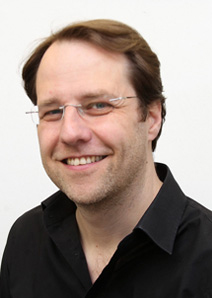
Impact highlights
- Impacted more than 25,000 non-traditional university applicants.
- Shifted practice among practitioners, and raised awareness among sector representatives, policy-makers and the wider public.
- Collaborations have led to the Academic Apprenticeship (Sutton Trust), the Online System for Completing Applications & References (OSCAR) and UniRise.
To apply for higher education courses in the UK, prospective students are required to submit a 4,000 character personal statement. The free-form nature of this process creates inequalities and is incompatible with Universities UK and GuildHE’s own Fair admissions code of practice. Researchers at The University of Manchester evidenced the challenges to influence major changes to the admissions process.

Professor Steve Jones
Steve Jones is a Professor of Higher Education in the School of Environment, Education and Development.
Led by Professor Steve Jones, the pioneering study of the way in which equal-attainment university applicants construct their ‘personal statement’ – has impacted more than 20,000 non-traditional university applicants. It has shifted practice among teachers, careers advisors and other practitioners, and raised awareness of access gaps among sector representatives, policy-makers and the wider public. Sustained collaborations with multiple independent partners have led to high-participation, evidence-based initiatives, such as the Academic Apprenticeship, now part of the Sutton Trust’s summer school, and the Online System for Completing Applications & References (OSCAR).
Publicity and debate about the research has generated substantial awareness-raising impact. The Russell Group, Universities UK, and several individual universities issued press statements in response to the findings. Following the publication of Professor Jones’ Sutton Trust reports, he was interviewed on the BBC Radio 4’s Today programme, addressed the Sunday Times Festival of Education and was interviewed on the BBC News channel.
This awareness-raising work has been central to driving a wider public conversation about fairness in university admissions and has facilitated direct communication of the research to policy-makers at HM Treasury (2014), the Department of Business, Innovation and Skills (2014), the All-Party Parliamentary University Group alongside the incumbent Minister for Universities and Science, and the Association of School and College Leaders (ASCL) annual conference.
The research also triggered interventions by a range of other organisations, including local initiatives that focused on access to university from young people within a particular region. Now in its seventh year, an intervention based in Cumbria involves seven universities, and the number of students attending the annual ‘conference’ has increased from 35 to 150.
Partly in response to the research, UCAS recently announced major changes to the admissions process from the 2024/25 admissions cycle. The ‘personal statement’ in its current form will be scrapped, and UCAS are consulting with stakeholders on the introduction of a replacement multi-question format.
External source of information
- Press Release: UCAS personal statements create inequality and should be replaced by short-response questions | Higher Education Policy Institute article
- Article: University personal statements to be changed 'as they favour middle-class' | The Telegraph article
Connect with our experts
We are excited to connect with audiences interested in our work.
Research detail
Other researcher by Professor Steve Jones
- Jones, S., Mann, A., Kashefpakdel, E., & McKeown, R. (2019). ‘My brother’s football teammate’s dad was a pathologist’: Serendipity and employer engagement in medical careers. In ESSAYS ON EMPLOYER ENGAGEMENT IN EDUCATION (pp. 114-127). Routledge.
- Jones, S. (2016). Making A Statement. (10 ed.) (Research Briefing; No. 10). The Sutton Trust.
- Jones, S., & Stead, V. (Ed.) (2015). Non-academic indicators and the Higher Education admissions process: a case study of the Personal Statement. In Handbook of Higher Education Admission Policy and Practice Peter Lang.
- Jones, S., Archer, L. (Ed.), Mann, A. (Ed.), & Stanley, J. (Ed.) (2014). The role of Work Experience in the UK Higher Education admissions process. In Understanding Employer Engagement in Education: theories and evidence Routledge.
- Jones, S. (2013). "Ensure that you stand out from the crowd": A corpus-based analysis of personal statements according to applicants' school type. Comparative Education
- Fryer, T., Westlake, S., & Jones, S. (2022). Reforming the UCAS personal statement: Making the case for a series of short questions. Higher Education Policy
